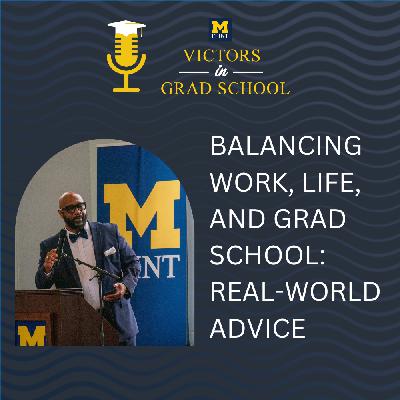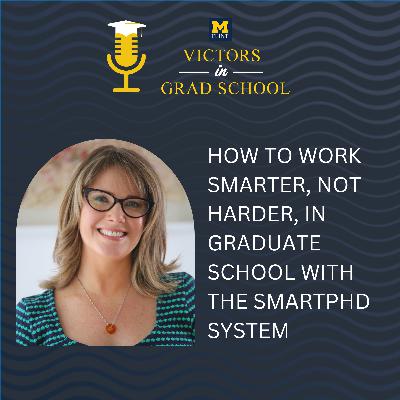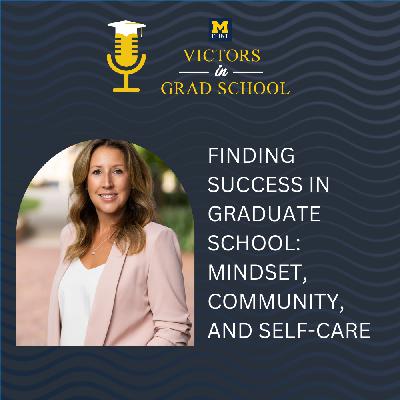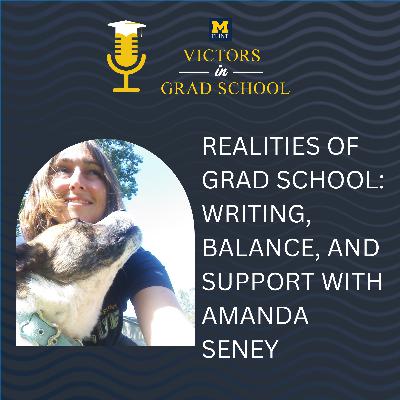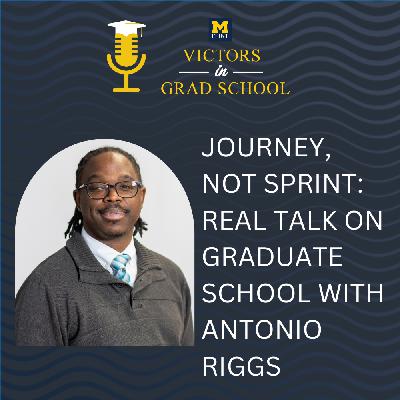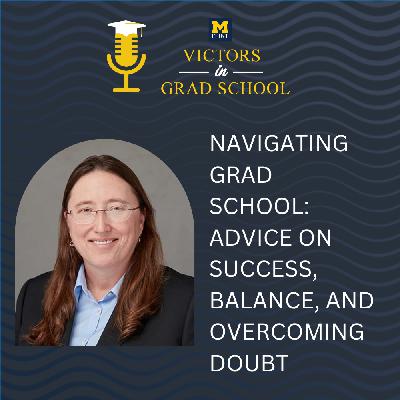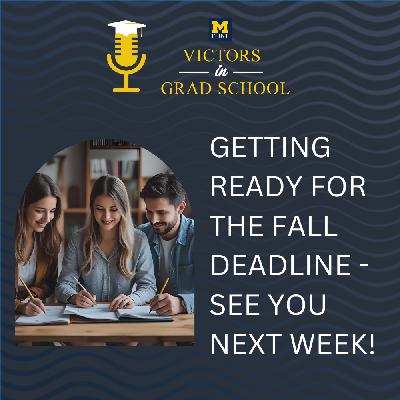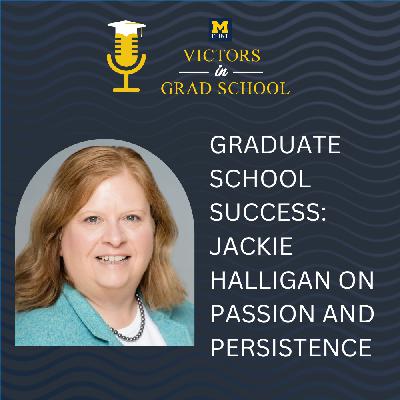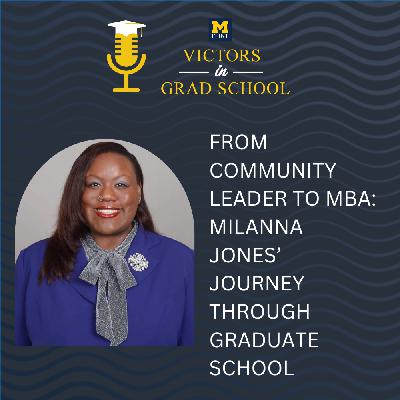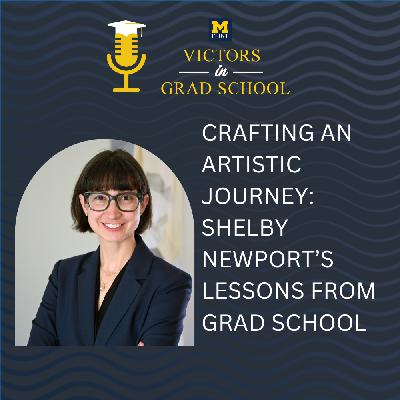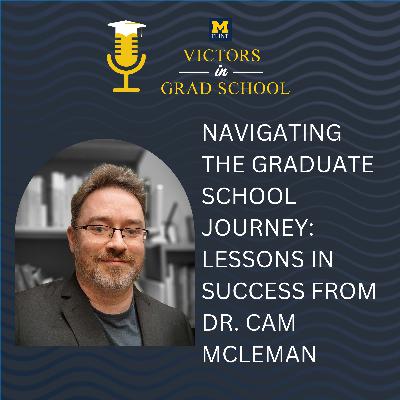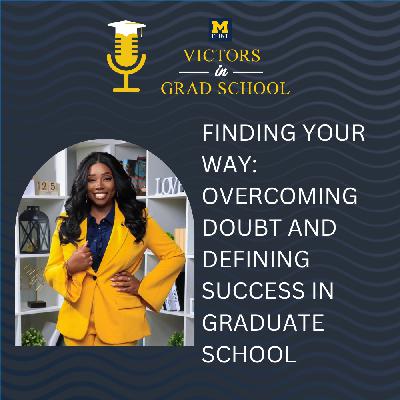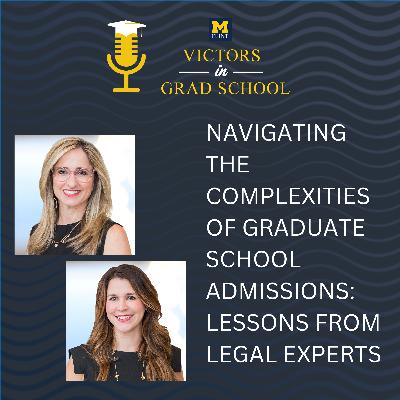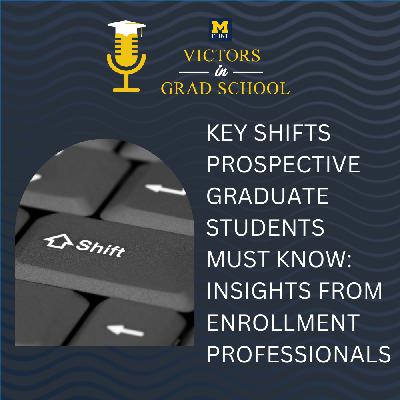Balancing Work, Life, and Grad School: Real-World Advice
Description
Graduate school isn’t just another chapter in your academic story—it’s a transformative journey that shapes your personal and professional life. In the latest episode of "Victors in Grad School," Dr. Christopher Lewis sits down with Ervin Leavy, Assistant Director of Facility Operations and Risk Management at the University of Michigan–Flint, to explore what it means to pursue graduate education as a working professional.
Ervin’s path is both relatable and inspiring. After earning his undergraduate degree in 1991, he began working in higher education, but realized years later that to truly thrive—especially as an adjunct lecturer—he needed to further his education. That realization led him back to school after an 18-year gap, a move he calls “one of the best decisions” of his adult life. His experience offers valuable insights for anyone considering grad school, especially those who may feel it’s “too late” to return.
Adapting to Change and Embracing Lifelong Learning
One prominent theme from Ervin’s story is embracing change. When he first entered grad school, the world had shifted dramatically—classes were online, technology was central, and Blackboard replaced the typewriters of his college days. By asking questions, seeking support, and choosing in-person classes, Ervin exemplified adaptability and the willingness to step out of his comfort zone.
The Importance of Support and Community
Ervin’s journey also highlights the value of strong support systems. He credits coworkers, colleagues, and campus resources with providing the motivation and flexibility he needed to succeed. For working professionals, leveraging employer education benefits, as Ervin did, can minimize financial barriers and provide a smoother path forward.
Finding Balance and Avoiding Burnout
Graduate school requires resilience. Ervin candidly shares the struggles he faced: late nights, technology mishaps, and moments of doubt. His advice? Find balance, rely on time management, and take breaks to recharge. Hobbies like chess and cooking offered him much-needed mental space.
Advice for Prospective Students
For anyone contemplating graduate school, Ervin urges you not to wait: "The longer you delay, the harder it can be to get back in the groove." Apply yourself fully, build relationships, and surround yourself with people who motivate and support you.
Ready for more inspiration and actionable insights? Tune into this episode of "Victors in Grad School" and hear first-hand how perseverance, adaptability, and a strong community can lead to graduate school success!
TRANSCRIPT
Dr. Christopher Lewis [00:00:01 ]:
Welcome to the Victors in Grad School, where we have conversations with students, alumni and experts about what it takes to find success in graduate school. Welcome back to Victors in Grad School. I'm your host, Dr. Christopher Lewis, Director of Graduate Programs at the University of Michigan, Flint. Really excited to have you back again this week. You know, every week I love that you come back, that you listen, that you are working to prepare yourself for this journey that you're on. And I call it a journey because it truly is a journey. Because no matter where you are in thinking about graduate school, applying to graduate school, going to graduate school, wherever you are in this pathway, it is a journey.
Dr. Christopher Lewis [00:00:45 ]:
And you're going to find that there are things that you can do along that path to help yourself to find success sooner. And that's what this show is all about. This show is here to help you to be able to make better choices, to be able to find new ways of doing things, to give yourself some tools for your toolbox that will prepare you to find success sooner. That's why every week I bring you different people, different guests with different experiences that can share their own experiences, sometimes good, sometimes maybe not so good of things that they learned along the way that can help you to again prepare yourself. This week we got another great guest. Irvin Levy is with us today. And Irvin is the Assistant Director of Facility Operations and Risk Management and Recreational Services at the University of Michigan, Flint. He did his undergraduate work at Central Michigan University and then did his graduate work here at the University of Michigan, Flint.
Dr. Christopher Lewis [00:01:48 ]:
We're going to learn a little bit more about him and about his experiences and his own journey in going to grad school. Ervin, thanks so much for being here today.
Ervin Leavy [00:01:56 ]:
Thank you for having me.
Dr. Christopher Lewis [00:01:58 ]:
It is my pleasure. Really excited to be able to talk to you today. I mentioned that you did your undergraduate work at Central Michigan University, and at some point during either your undergraduate degree or after graduating, you got an inkling, you got an inkling, you got that itch, you started to scratch it, you decided that you were going to go to graduate school. Take me back to that point. What was going through your head and what made you decide that you wanted to go to graduate school?
Ervin Leavy [00:02:31 ]:
Well, I got my Undergrad degree in 1991 from Central Michigan University. I began working here at the university in 2002, and I just had my undergrad degree after about seven years working in higher education. Education. That's when I realized I needed to further my education, especially on the technology side, as I was an Adjunct lecturer. So in 2009, I decided that I was going to go back to school and get my master's degree in technology and education. And that was one of the best moves that I ever made in my adult life was going back to school. Because when I came out in 91, there were not very many computers and we all had typewriters when I was in college. So when I went back to school in 2009, it was to.
Ervin Leavy [00:03:17 ]:
Everything was totally different. Work was being done on blackboard, everything was pretty much online. So that was an adjustment period for me. But working in higher education, I felt that was needed in order for me to be successful.
Dr. Christopher Lewis [00:03:30 ]:
So you decided to continue your education at the University of Michigan Flint. And you probably had some reasons for doing that. And I guess talk to me about the, your decision making and as you were looking at different programs potentially or why you chose not only the University of Michigan Flint, but why educational technology?
Ervin Leavy [00:03:50 ]:
Well, at the time I was an adjunct lecturer, I taught a variety of one credit classes. And what I noticed in the classroom was I wasn't that advanced in technology. And I chose that field because I thought it would help me in my teachings. And it did. I learned a lot regarding just working with the disabled. I learned the importance of using closed captions in my teachings. And that was the reason I went. And another reason I went is being an employee here at the university.
Ervin Leavy [00:04:25 ]:
There's a excellent tuition reimbursement program, so I had to take advantage of that. And it didn't cost me anything. Only thing I had to pay for was my books. So I couldn't let that opportunity pass me by.
Dr. Christopher Lewis [00:04:38 ]:
You know, and that's something that we haven't talked a lot about, even though some people from past shows have talked about that, is that you may be out there, you may be working, and there could be educational benefits that your employer provides you. And I always encourage people to take the time to have a conversation with your human resources office to find out are there opportunities that are available because they could be there. You just have to make sure you understand what the strings that are attached to that money are. So make sure that you're asking the right questions and determine whether or not you want to be bound by whatever the rules are if there is educational money that is available through your employer. Because I've seen people come in and they're, they and it's a great program. And then I've seen others where they may have to stay with the employer for a certain amount of time or the money that they took becomes alone. So you have to watch that and just know what you're getting yourself into, which is great. Now every person goes through a process of

